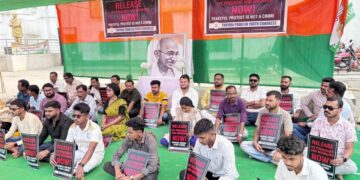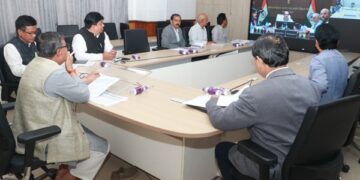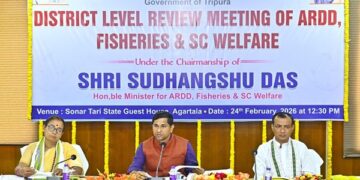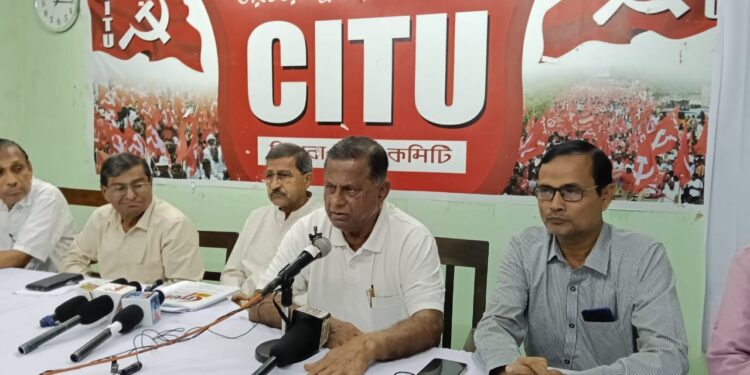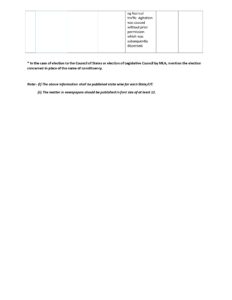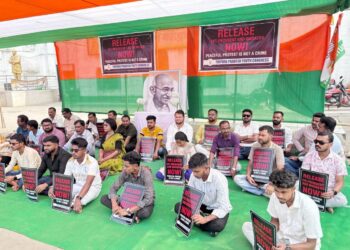Agartala, July 9: The nationwide general strike called by ten central trade unions on Tuesday witnessed a strong response across Tripura, claimed Centre of Indian Trade Unions (CITU) State Secretary Shankar Prasad Dutta in a press conference. The strike was organized to protest against what unions called “anti-labour and anti-people” policies of the Central Government.
Dutta said the strike received spontaneous support from both urban and rural populations, significantly affecting sectors such as transportation, education, banking, and telecommunications.
“Approximately 80% of transport operators supported the strike. Major vehicle hubs like Kailashahar, Radhanagar, and Udaipur saw minimal operations. Though some vehicles were forced to run under pressure from the ruling party, they returned due to a lack of passengers,” he alleged.
CITU also claimed that drivers were threatened with suspension if they did not ply their vehicles. At Nagerjala stand, only 12 e-rickshaws were cleared by 10 a.m., compared to the usual 55. Bus services from Udaipur, normally every eight minutes, dropped to one per hour.
The education sector was also impacted. MBB University announced a closure in advance, and most school buses in the capital remained empty. According to Dutta, 60% of bank employees participated in the strike, with some branches operating on skeletal staff. Insurance and BSNL sectors saw 72% and 82% participation, respectively.
All India Kisan Sabha (AIKS) State Secretary Pabitra Kar added that farmers too joined the protest, disrupting daily supply of vegetables from rural areas.
Former minister Manik Dey alleged intimidation tactics by the ruling party, claiming shopkeepers and drivers were forced to operate under threat. “Despite this, people stood strong. The strike was a success,” he said.
The trade unions asserted that public solidarity outweighed suppression attempts, highlighting widespread discontent with current policies.

